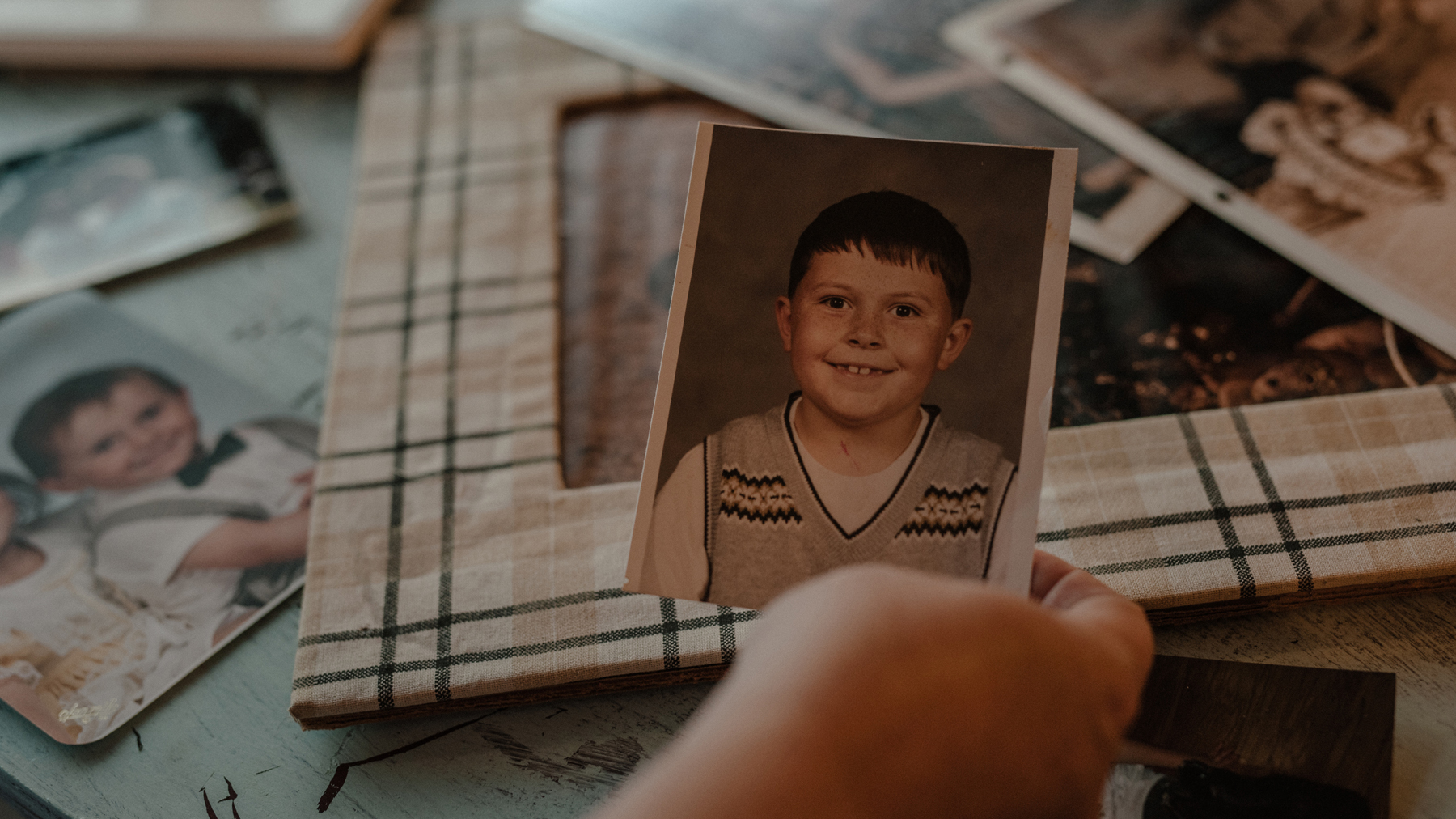Tyler Haire was 16 when he was locked up. He was 20 before he went to trial.
Tyler spent 1,266 days in the Calhoun County jail in Pittsboro, Mississippi, waiting for a mental health evaluation. He had called 911 on Nov. 17, 2012. When police came, they arrested him for stabbing his father’s girlfriend.
Once in jail, he colored pictures of dragons and aliens for the sheriff and his deputies. Sitting in front of the television, Tyler held his feet and rocked back and forth. He misspelled his own name in two different court documents. He went without any of his prescriptions. He lost 90 pounds.
Tyler’s court-appointed lawyer told the judge it was clear Tyler didn’t have “sufficient mental capacity” to understand the charge against him. He asked that Tyler receive a psychiatric evaluation, and the judge — looking at Tyler’s history of seven different mental disorders, the first diagnosed when he was just 4 years old — agreed.
What happened next became a national scandal when Sarah Smith published her investigation for ProPublica last winter.
Waiting for an evaluation, Tyler celebrated his 18th, 19th, and 20th birthdays behind bars. Every month, Sheriff Greg Pollan called the state mental hospital and asked when Tyler would be admitted.
“He should have been evaluated, for God’s sake, within a couple or three months after he was arrested,” Pollan told us by phone this week.
The hospital told Pollan that Tyler was third on its list and then, in the very next call, that he had inexplicably slipped to No. 10. It would admit him “in two weeks.”
It would actually take nearly four years.
“Has the system let him down?” Pollan asked. “Hell yeah, it let him down! It let me down trying to help him. I had no tools. None. And I threw fits, I yelled, screamed, cussed, prayed, I did whatever I needed to do, to try to get him the help.”
But it wasn’t until the spring of 2016, when a Clarion-Ledger story about Tyler prompted Mississippi’s attorney general to call the state hospital, that he was finally evaluated. According to one of Pollan’s staff members, who drove Tyler to his exam, he emerged in an hour sweating and in tears: The psychiatrist had asked him to add two plus one, and he couldn’t do it.
The evaluation for which Tyler had waited so long found him competent to stand trial. He took an Alford plea for a reduced sentence and seemed to think he’d get out in two or three weeks.
“Tyler was literally like talking to a 6- or 8-year-old kid,” said Pollan. “And I don’t know that he understands. I don’t think he has the ability to understand and comprehend that when they let him out, at some point in time, he is going to have to meet with a PO [probation officer] every 30 days or once a month. I don’t think he has that ability.”
But as of last Tuesday, that’s exactly what Tyler will have to do. Tyler was released from custody this week — and he has nowhere to go.
His mother has moved out of the state. His father has disowned him. Although Tyler told Pollan years ago that he’d go live with his grandfather, Pollan doesn’t think Tyler’s grandfathers are actually alive, or even in the picture.
“I’m scared of what’s going to happen when he gets out,” Pollan said this week. “He’s either going to hurt somebody or somebody is going to really bad hurt him because Tyler’s not gonna know how to survive. He doesn’t know how to pay a bill! He doesn’t even know how to go get an apartment! And if he did he can’t work to support himself. He really can’t. It was literally like having a small child in my jail that was 5-foot-10.”
We’ve been fighting to end the prosecution of children as adults in Mississippi for years. Had he been placed in the juvenile justice system instead of an adult jail, Tyler might at least have gotten some treatment while he waited for his competency evaluation. Cases like Tyler’s highlight how far we have to go to reform the state’s mental health system and its criminal justice system — a system that prosecuted Tyler as an adult and kept him locked up in an adult jail and without a trial for almost four years.
“When I am retired and probably in the nursing home and my mental faculties are only halfway working, this is that case that will haunt me forever,” Pollan said.
It should haunt all of us.
The Editors
P.S. Here are some other pieces that we think are valuable this week:
- The recent mass shootings all have one thing in common: Misogyny by Jessica Valenti for The Guardian
- Six black girls were brutally murdered in the early ‘70s. Why was this case never solved? by Cheryl W. Thompson for The Washington Post
- A county where the sewer is your lawn by Catherine Flowers for The New York Times
- There are no lone wolves by Jared Keller for Pacific Standard
SPLC’s Weekend Read is a weekly summary of the most important news reporting and commentary from around the country on civil rights, economic and racial inequality, and hate and extremism. Sign up to receive the Weekend Read every Saturday morning.
Photo credit Mike Belleme.



